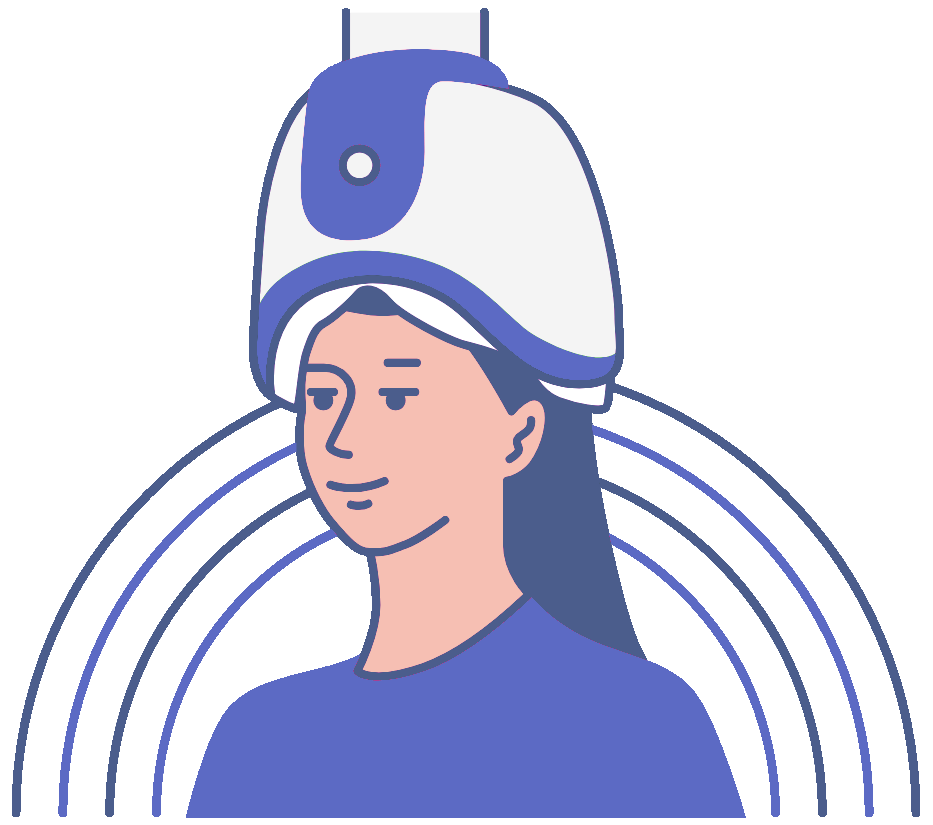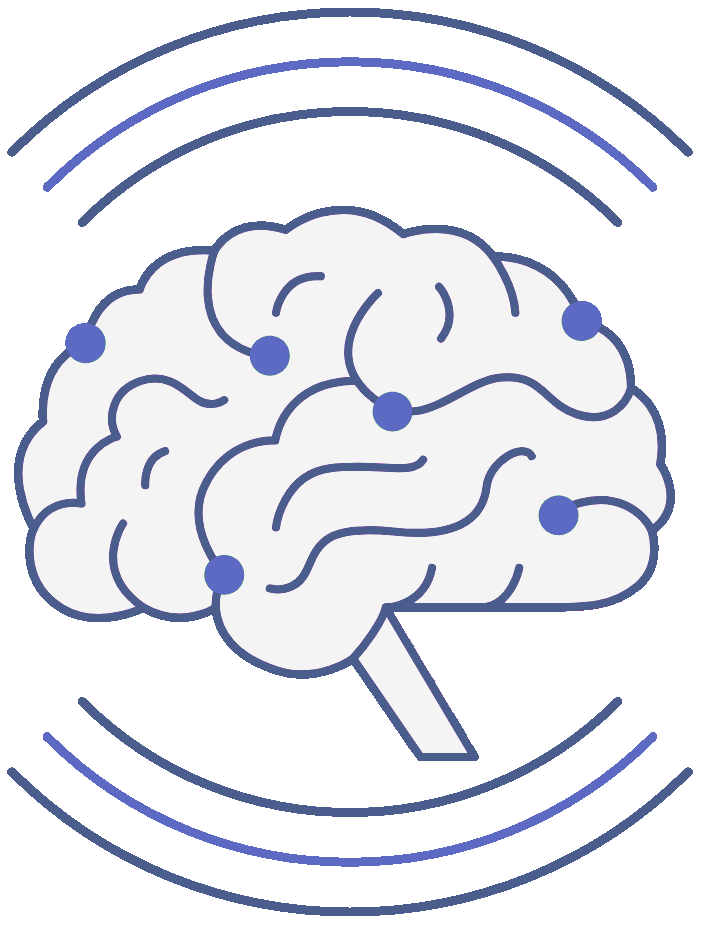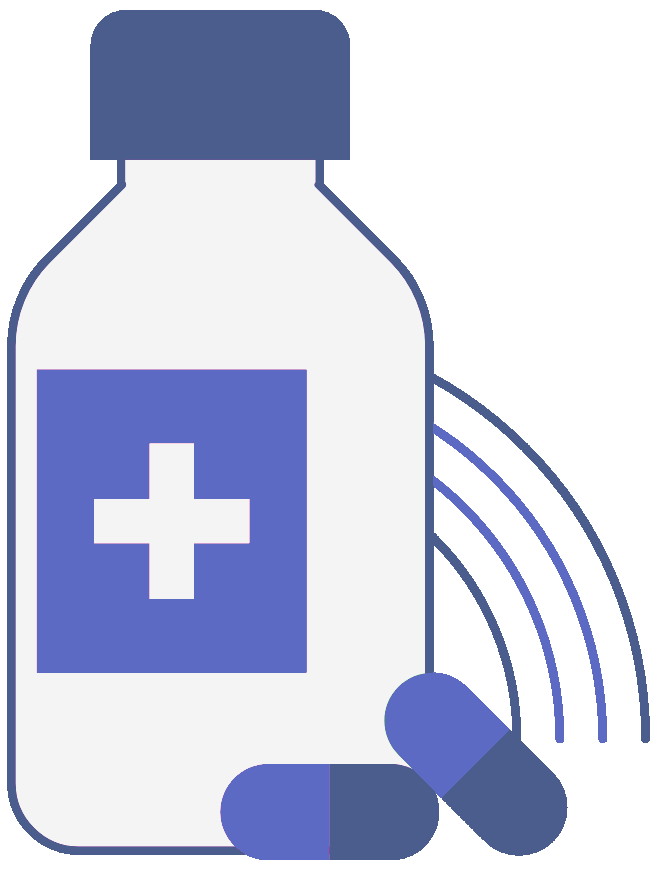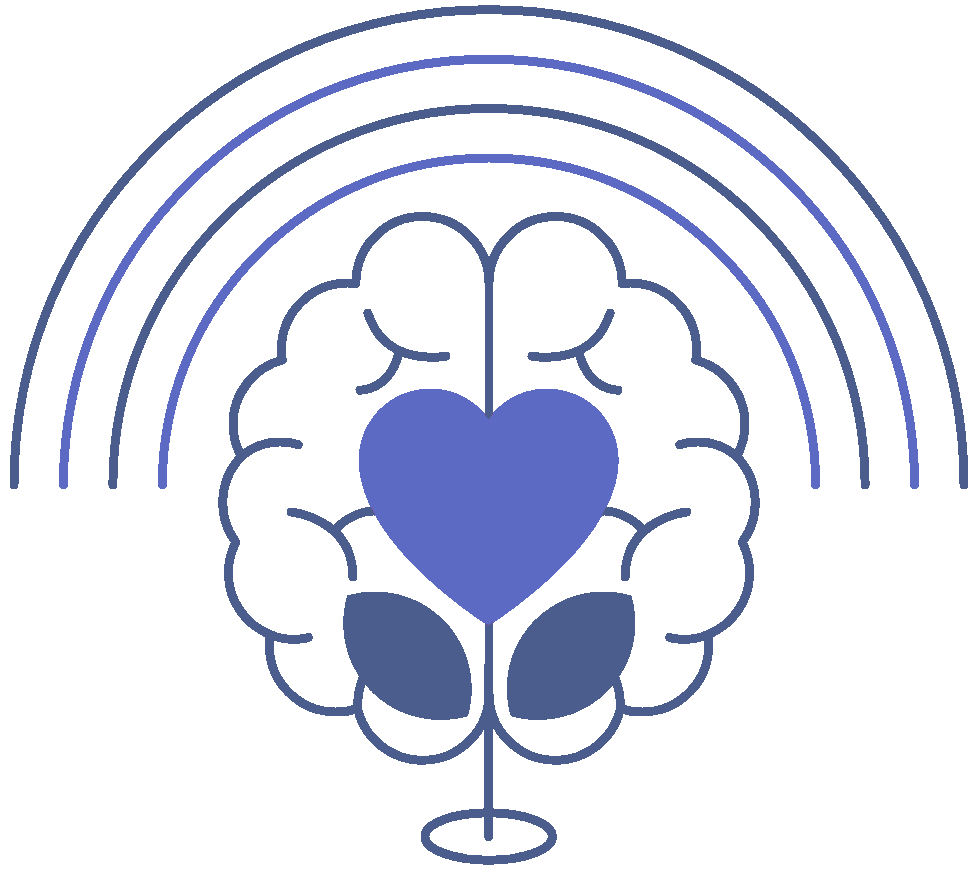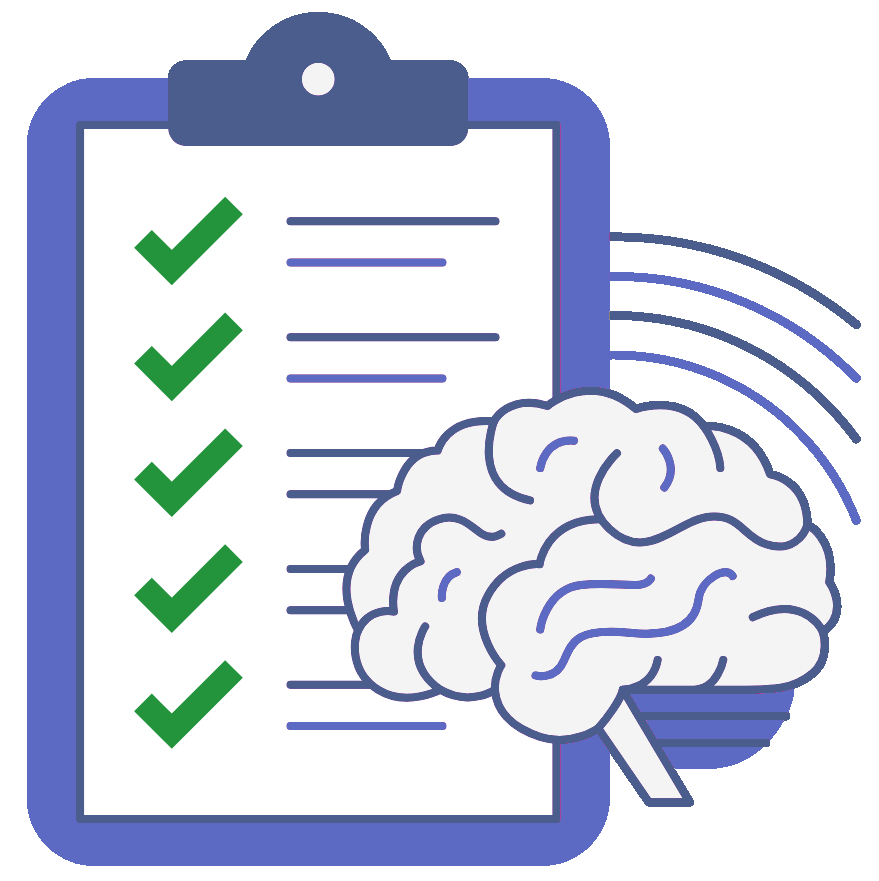We’ll review your message within 1 business day

What Is TMS?
Explore if non-invasive brain stimulation could be the next step in your healing journey.
Transcranial magnetic stimulation (TMS) is a non-invasive, FDA-approved treatment that uses carefully controlled magnetic pulses to stimulate areas specific to certain symptoms that can impact your mental health, such as mood regulation. It’s especially helpful for people who haven’t seen results through traditional treatments like medication or talk therapy.
TMS can reduce symptoms of depression, obsessive-compulsive disorder (OCD), and other mental health conditions by restoring healthier brain activity, without the systemic side effects of medications. It’s safe, well-tolerated, and patients report finding relief from their symptoms within 2 to 3 weeks of treatment.
Is TMS a Good Fit for Me?
Here are a few key questions to help guide your decision:
Have You Tried Other Treatments Without Success?
TMS is often recommended for people with treatment-resistant depression (TRD) - meaning you’ve tried at least two antidepressants without lasting improvement. If medications haven’t worked for you, or if side effects have been too disruptive, TMS offers an advanced approach that doesn’t involve substances circulating through your body or affecting your neurochemistry the way medications do.
Are You Diagnosed with a Condition TMS Can Help Treat?
TMS is FDA-approved for:
- Major depressive disorder (MDD); characterized by treatment resistance
- Obsessive-compulsive disorder (OCD)
- Smoking Cessation
It’s also being explored as an off-label treatment for other conditions such as:
- Anxiety
- PTSD
- Chronic pain
- Bipolar depression
If you're unsure how your symptoms and experiences align with these conditions, our clinicians can help determine whether TMS is appropriate during your initial assessment.
Are You Looking for a Non-Medication Option?
Most people tolerate TMS well. If you experience anything at all, it’s typically mild:
TMS may be ideal if you:
Since TMS only targets specific brain regions and doesn’t affect the entire body, many patients experience minimal side effects. The most common side effects include temporary scalp sensitivity or mild headaches, which ease after the first couple of weeks of treatment.
- Have experienced intolerable side effects from medication
- Prefer a drug-free approach
- Want to avoid increasing or layering medications
Do You Have Time to Commit to a Short-Term, Structured Protocol?
TMS is typically delivered 5 days a week for 4 to 6 weeks, with each session lasting about 20–30 minutes. Accelerated options are also available, involving multiple sessions per day over a shorter period. This typically follows a protocol of 10 sessions per day for 5 days. If you can find the capacity to commit time and give yourself the chance to make strides in your mental health journey, this treatment may offer lasting benefits that ripple out into your daily life and your ongoing quality of life.
Are There Any Medical Factors That May Affect Suitability?
Before beginning TMS, we will complete a comprehensive medical evaluation to understand your medical history, preferences, and needs. There are a few contraindicates of TMS, but importantly, it is not recommended if you have:
- A history of seizures
- Certain types of metal implants or devices in the head
However, for most patients, TMS is considered very safe and well-tolerated. We mindfully tailor each treatment plan to your individual health profile, ensuring your care is provided in a clinically safe, considerate environment
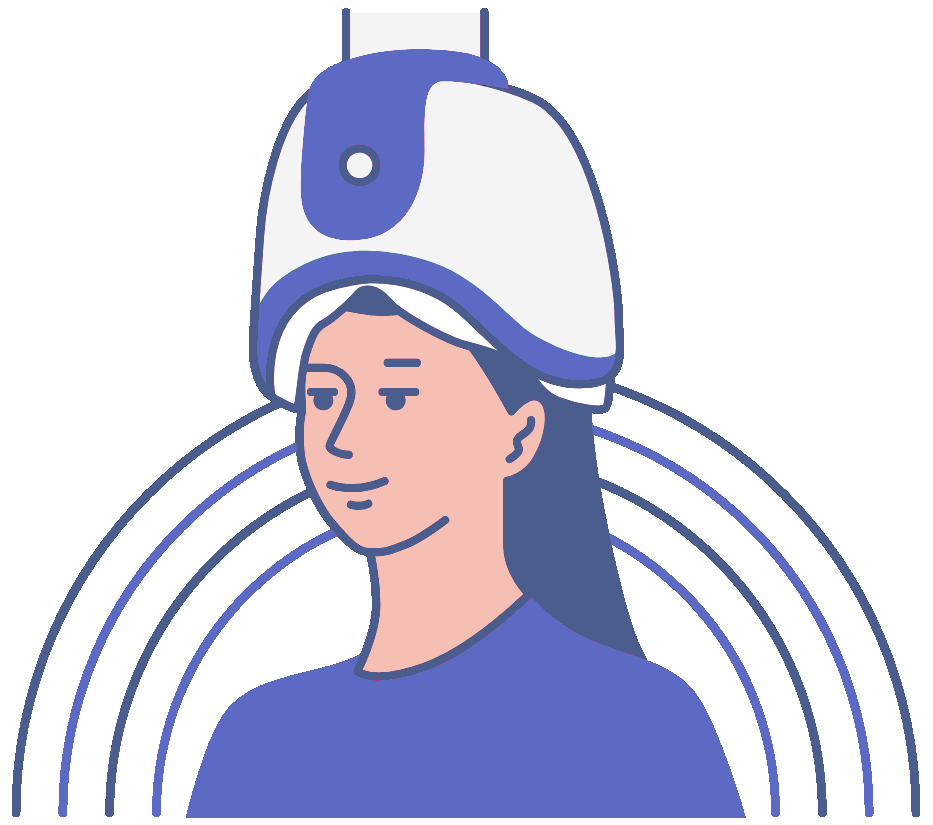
TMS for Teens and Young Adults
TMS is FDA-approved for individuals aged
15+ with depression using certain devices. If you’re a parent or a young adult exploring next steps, we can explore whether TMS is a fitting component of your or your loved one’s comprehensive care plan.
What Happens Next?
If TMS feels like a fit or if you're just curious, we’re here to help you make a confident, informed decision. Your next step will be a formal mental health assessment with one of our clinicians. Together, we’ll explore your symptoms, goals, and treatment history to determine the best path forward, whether that includes TMS, another form of care, or a combination of both with supplementation of holistic practices.
We’ll also walk you through insurance eligibility, scheduling options, and what to expect at each stage of treatment. Reach out to our team today to learn more or schedule your initial assessment.
Feel Like You’ve Tried Everything?
If talk therapy and medication haven’t worked, there’s still a path forward. Take a short quiz to see if TMS might be right for you.
Dr. Lewis is both super smart and on the cutting edge of research in the field, and a thoughtful compassionate listener. She is great at getting to the nut of any issue and makes thoughtful recommendations for how to move forward. I've sent her multiple patients who give her great reviews and the kids she's worked with think she is super-cool.
Laura R.
Integrative Options
Related Services
Your Care Thoughtfully Matched
Not sure which treatment is right? Take a short quiz. Your responses go straight to our care team, who will follow up with expert treatment recommendations tailored to you.
Why Integrative Mind Is Different
We treat the whole person - not just the symptoms. Combining advanced treatments, compassionate care, and personalized planning to help you heal, grow, and thrive.

Most Major Insurance Accepted

Holistic, Whole‑Person Care

All‑Inclusive 5‑Day Program
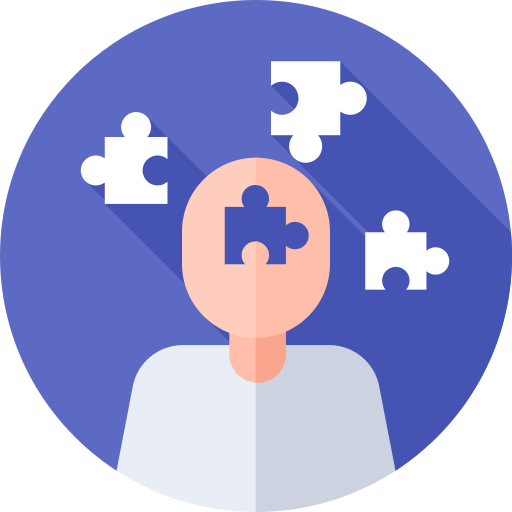
Personalized Treatment Plans

Evidence‑Based Treatments

Expert, Compassionate Team
Learn. Compare. Decide.
Your Questions, Answered.

Compare
Explore the differences between TMS, medication, therapy, and holistic strategies - side by side.

Pros & Cons
Understand the benefits and limitations of TMS therapy so you can make an informed decision.

Expectations
Learn what your care journey will look like - from your first visit to your personalized treatment plan.
Free Consultation
For more details or to schedule a 10 minute consultation, give us a call at 917-590-3727 or complete the form below.
What Happens After I Send My Message?


A care coordinator will follow up to answer your questions

We’ll guide you through the next steps to book your assessment
Virtual & In-person Appointments
Office Information
